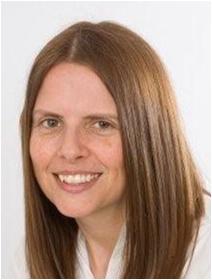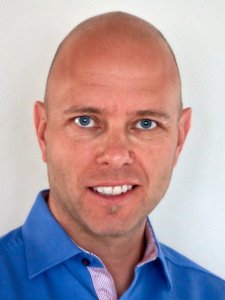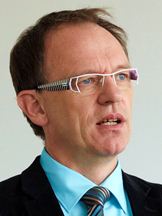Keynotes
IFIPTM 2017 is proud to announce three keynotes to accompany and complement the conference program.
- Siani Pearson: Strong Accountability and the New IT
- Mathias Widman (Volvo Group Telematics/WirelessCar): Extended vehicle trust and security — how hard can it be?
- Max Mühlhäuser (TU Darmstadt): Trust for Security – Security for Trust
Siani Pearson: Strong Accountability and the New IT
Abstract: Accountability has long been the subject of discussion within public administration. Especially given the potential privacy and security risks arising from rapidly changing usage of information technology (IT), it can be useful to apply this notion also in the commercial world, relating to the actions of private organisations. However, accountability may be neither a necessary nor a sufficient condition for trust. In order to provide an improved basis for trustworthiness via enhancing accountability, certain conditions need to be met. In this talk I elucidate what these conditions are and explain the related notion and importance of strong accountability. Further, I ground this analysis within the wider context of organisational ethical decision making. As a topical case in point I will focus on the data protection area and the protection of personal data.
Biography:  Dr Siani Pearson received an MA from Oxford University in logic, a PhD in artificial intelligence from the University of Edinburgh and was a Research Fellow at the Computer Lab in Cambridge University before joining HP in 1994. For over 20 years she has taken a leading role within a variety of security, privacy and trust-related research projects at Hewlett Packard Labs Bristol. Her current work focuses on data protection and she holds over 70 patents and is author or co-author of well over 100 papers and technical reports in the privacy and security domain. She is a Fellow of the British Computer Society, senior member of IEEE, CCSK certified and a Certified Information Privacy Professional/Information Technology. She has been editor and co-author of books on Trusted Computing and on Privacy and Security for Cloud Computing. She has been technical lead on a variety of projects in the data protection and compliance area for more than a decade, as well as being the scientific co-ordinator of a major European research project on Accountability for the Cloud (A4Cloud), member of UK IEC subcommittee on data principles, steering committee of CSA GRC stack and Vice President of UK Cloud Security Alliance. She is currently or has recently been a member of: HPE Privacy and Data Protection Board; HP Cloud Security WG; CSA PLA and OCF WGs; IEEE Transactions on Cloud Computing Editorial Board; numerous programme and steering committees, including being Program Chair of IEEE CloudCom 2013 and IEEE CloudCom 2014; advisory boards of several universities and EU projects.
Dr Siani Pearson received an MA from Oxford University in logic, a PhD in artificial intelligence from the University of Edinburgh and was a Research Fellow at the Computer Lab in Cambridge University before joining HP in 1994. For over 20 years she has taken a leading role within a variety of security, privacy and trust-related research projects at Hewlett Packard Labs Bristol. Her current work focuses on data protection and she holds over 70 patents and is author or co-author of well over 100 papers and technical reports in the privacy and security domain. She is a Fellow of the British Computer Society, senior member of IEEE, CCSK certified and a Certified Information Privacy Professional/Information Technology. She has been editor and co-author of books on Trusted Computing and on Privacy and Security for Cloud Computing. She has been technical lead on a variety of projects in the data protection and compliance area for more than a decade, as well as being the scientific co-ordinator of a major European research project on Accountability for the Cloud (A4Cloud), member of UK IEC subcommittee on data principles, steering committee of CSA GRC stack and Vice President of UK Cloud Security Alliance. She is currently or has recently been a member of: HPE Privacy and Data Protection Board; HP Cloud Security WG; CSA PLA and OCF WGs; IEEE Transactions on Cloud Computing Editorial Board; numerous programme and steering committees, including being Program Chair of IEEE CloudCom 2013 and IEEE CloudCom 2014; advisory boards of several universities and EU projects.
Mathias Widman (Volvo Group Telematics/WirelessCar): Extended vehicle trust and security — how hard can it be?
Abstract: Being at the ever-changing developing forefront of automotive aftermarket services, driven by the quickly evolving market demands of improved customer and business values, one might at first marvel at the fantastic possibilities inherent in all cool technology awaiting to be exploited.
There’s a great playing field, ripe with new business opportunities, ultra-cool usability characteristics ready to burst and vast possibilities to create valuable services. So, you enter your design think tank and soon realize that one of the immediate unavoidable ever present variables in the equation is the fundamental ingredient we call trust. Not only is it at the absolute epicenter of all aspects and cases, it is elusive and its complexity cannot be dodged. What is trust and why do we need it? Who needs to trust who? How do we create trust and is it possible to create trust shared by everyone?
As complex as it is in the originating fields of psychology and social and political science, it’s a similar tough beast to tame and define within the landscape of the extended vehicle.
Starting from the top down, defining the arena, the functions and the participating players, allow me to be your cicerone during this little investigative journey to the land of automotive aftermarket services, and how we address and step up to the challenge of reaching end-to-end trust and security. From high level defining factors to trust and security requirements in architecture, and the challenges they represent. Continuing by elaborating around solutions in different parts and finally a wrap up with thoughts about what the future might bring.
Biography:  Mathias Widman is responsible security domain architect at Volvo Group Telematics/WirelessCar in Gothenburg, Sweden. His department develops and operates telematics services for Volvo Group products such as trucks, buses and construction equipment as well as a number of well-known car OEM manufacturers globally around the world. As an initial joint venture in 1999 including Ericsson, Telia and Volvo, the telematics brand and business WirelessCar, was later on merged into Volvo Group Telematics and is at present fully owned by Volvo Group. The brand WirelessCar, has received multiple awards as the #1 Telematics Service Provider in world.
Mathias Widman is responsible security domain architect at Volvo Group Telematics/WirelessCar in Gothenburg, Sweden. His department develops and operates telematics services for Volvo Group products such as trucks, buses and construction equipment as well as a number of well-known car OEM manufacturers globally around the world. As an initial joint venture in 1999 including Ericsson, Telia and Volvo, the telematics brand and business WirelessCar, was later on merged into Volvo Group Telematics and is at present fully owned by Volvo Group. The brand WirelessCar, has received multiple awards as the #1 Telematics Service Provider in world.
After receiving a M.Sc. in Computer Science and Engineering at Chalmers University of Technology more than 20 years ago, Mathias started working with software development and has during the years worked as developer/architect/lead at multiple levels. His experience with information security began in early 2000 developing for the embedded systems area. Mathias previously worked as lead security domain architect at PostNord before he joined Volvo Group in 2012 and as a result of Volvo Group’s two-faced business, he is well experienced in both the commercial and the OEM automotive telematics arenas. Today he has the role as an Enterprise Architect and cyber security expert/advisor and leads the security area for telematics services within Volvo Group. He holds a number of security related patents and with an eye for a holistic view, he is passionate about security from an end-to-end perspective. He is currently heavily involved in building Volvo Group’s next generation trust system for the extended vehicle (vehicles and back-office services on premise and in the cloud) and he is also doing research around optimizing threat modeling/analysis together with Chalmers and other external actors.
Max Mühlhäuser (TU Darmstadt): Trust for Security – Security for Trust
Abstract: The tight relationship between computational trust and IT security has been addressed by different authors in various publications already. There were attempts to harmonize both fields, considering them as two sides of the same medal – coined as soft security and hard security, or conversely, as soft trust and hard trust. In the keynote, we will briefly review this past research that concentrates on how trust and security can *complement* each other. We will then focus on more recent efforts hat concentrate on how trust and security can *act in service of* each other. Under the heading “trust for security”, we will investigate how IT security scenarios can be assessed by means of computational trust; under the heading “security for trust”, we will investigate how computational trust assessment can be “secured” against various threats. Recent research contributions to both fields and open challenges will conclude the talk.
Biography:  Prof. Dr. Max Mühlhäuser is head of the Telecooperation Lab at Technische Universität Darmstadt, Informatics Dept. His Lab conducts research on smart ubiquitous computing environments for the ‘pervasive Future Internet’ in three research fields: middleware and large network infrastructures, novel multimodal interaction concepts, and human protection in ubiquitous computing (privacy, trust, & civil security). He heads or co-supervises various multilateral projects, e.g., on the Internet-of-Services, smart products, ad-hoc and sensor networks, and civil security; these projects are funded by the National Funding Agency DFG, the EU, German ministries, and industry. Max is heading the doctoral school Privacy and Trust for Mobile Users and serves as deputy speaker of the collaborative research center MAKI on the Future Internet and of the center for infrastructure-less emergency response NICER. Max has also led several university wide programs that fostered E-Learning research and application. In his career, Max put a particular emphasis on technology transfer, e.g., as the founder and mentor of several campus-based industrial research centers.
Prof. Dr. Max Mühlhäuser is head of the Telecooperation Lab at Technische Universität Darmstadt, Informatics Dept. His Lab conducts research on smart ubiquitous computing environments for the ‘pervasive Future Internet’ in three research fields: middleware and large network infrastructures, novel multimodal interaction concepts, and human protection in ubiquitous computing (privacy, trust, & civil security). He heads or co-supervises various multilateral projects, e.g., on the Internet-of-Services, smart products, ad-hoc and sensor networks, and civil security; these projects are funded by the National Funding Agency DFG, the EU, German ministries, and industry. Max is heading the doctoral school Privacy and Trust for Mobile Users and serves as deputy speaker of the collaborative research center MAKI on the Future Internet and of the center for infrastructure-less emergency response NICER. Max has also led several university wide programs that fostered E-Learning research and application. In his career, Max put a particular emphasis on technology transfer, e.g., as the founder and mentor of several campus-based industrial research centers.
Max has over 30 years of experience in research and teaching in areas related to Ubiquitous Computing (UC), Networks and Distributed Systems, E-Learning, and Privacy&Trust. He held permanent or visiting professorships at the Universities of Kaiserslautern, Karlsruhe, Linz, Darmstadt, Montréal, Sophia Antipolis (Eurecom), and San Diego (UCSD). In 1993, he founded the TeCO institute in Karlsruhe, Germany, which became one of the pace-makers for Ubiquitous Computing research in Europe. Max regularly publishes in Ubiquitous and Distributed Computing, HCI, Multimedia, E-Learning, and Privacy&Trust conferences and journals and authored or co-authored more than 400 publications. He was and is active in numerous conference program committees, as organizer of several annual conferences, and as member of editorial boards or guest editor for journals like Pervasive Computing, ACM Multimedia, Pervasive and Mobile Computing, Web Engineering, and Distance Learning Technology.
